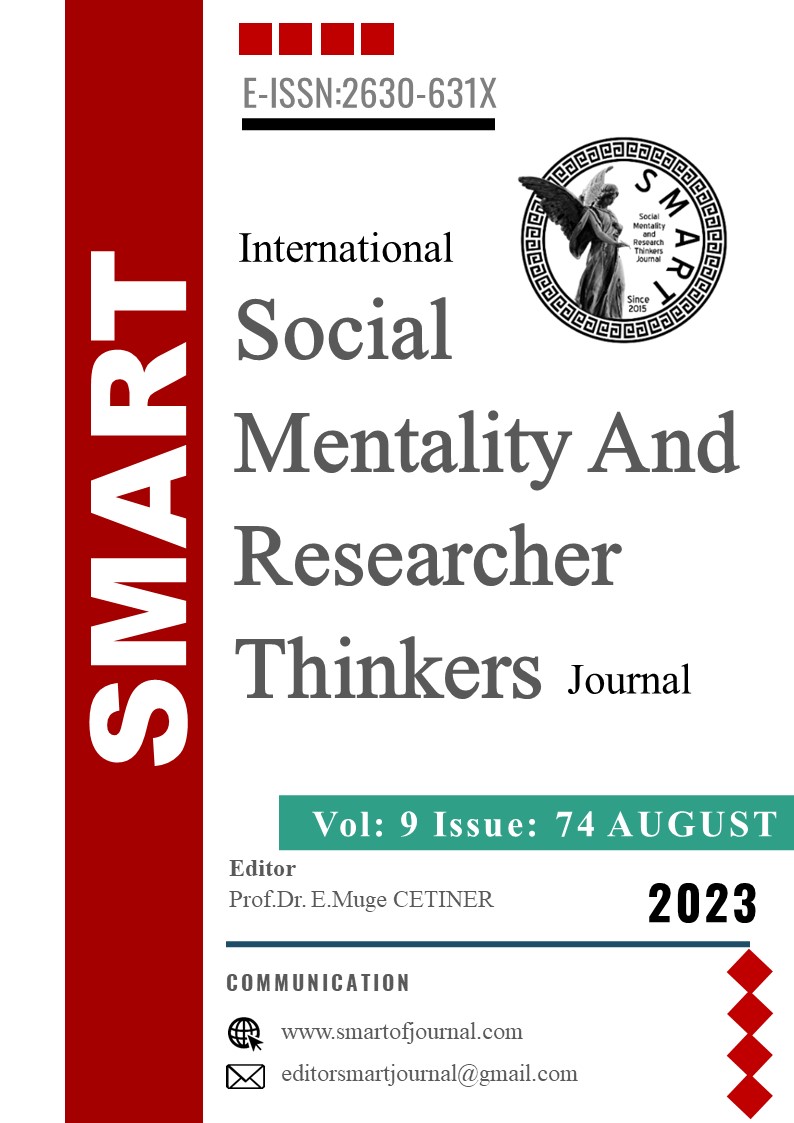Sanatla Terapi Teknikleri ile Yapılan Grup Uygulamasının Bireylerin Travma Sonrası Biliş ve Aleksitimi Düzeylerine Etkisi
Author :
Abstract
Bu çalışmada, sanatla terapi tekniklerinin bireylerin travma sonrası biliş ve aleksitimi düzeyleri üzerindeki etkisinin araştırılması amaçlanmıştır. Çalışma, ön test ve son test kontrol gruplu deneysel desende yürütülmüştür. Çalışmanın örneklemi Kırklareli ilinde yaşayan 20-50 yaş aralığındaki bireyler arasından basit rastgele örnekleme yöntemi ile seçilen 30 kişi (15 kişi deney grubunda 15 kişi kontrol grubunda) oluşturmaktadır. Çalışmada deney grubuna sanat terapisi uygulanmış olup kontrol grubuna ise sadece psiko-eğitim verilmiştir. Uygulama öncesinde ve sonrasında Travma Sonrası Bilişler Ölçeği ve Toronto Aleksimi Ölçeğini içeren bir anket formu kullanılarak katılımcıların ön test ve son test düzeylerine ilişkin veri toplanmıştır. Elde edilen verilerle SPSS v25 yazılımı kullanılarak analizler gerçekleştirilmiştir. Çalışmada gerçekleştirilen Mann-Whitney U testi ve Kruskal-Wallis testi sonucunda katılımcıların travma sonrası sosyal bilişler ve aleksitimi düzeylerinin araştırmada incelenen demografik özelliklerine göre anlamlı farklılık göstermediği belirlenmiştir. Çalışmada gerçekleştirilen ANCOVA analizleri
sonucunda, sanatla terapi teknikleri grup uygulamasının travma sonrası olumsuz bilişleri azaltmada anlamlı bir etkisinin olduğu tespit edilmiştir. Diğer taraftan, sanatla terapi teknikleri grup uygulamasının aleksitimi üzerinde
anlamlı bir etkisinin olmadığı görülmüştür.
Keywords
Abstract
In this study, it was aimed to investigate the effects of art therapy techniques on individuals' post-traumatic cognition and alexithymia levels. The study was carried out in an experimental design with pretest and posttest control groups. The sample of the study consists of 30 people (15 in the experimental group and 15 in the control group) selected by simple random sampling method among individuals between the ages of 20-50 living in Kırklareli. In the study, art therapy was applied to the experimental group, and only psycho-education was given to the control group. Before and after the application, data on the pretest and posttest levels of the participants were collected by using a questionnaire including the Post Traumatic Cognition Scale and the Toronto Aleximia Scale. Analyzes were carried out using SPSS v25 software with the obtained data. As a result of the Mann-Whitney U test and Kruskal-Wallis test performed in the study, it was determined that the post-traumatic social cognitions and alexithymia levels of the participants did not differ significantly according to the demographic characteristics examined in the study. As a result of the ANCOVA analyzes performed in the study, it was determined that the group application of art therapy techniques had a significant effect on reducing post-traumatic negative cognitions. On the other hand, group practice of art therapy techniques did not have a significant effect on alexithymia.





